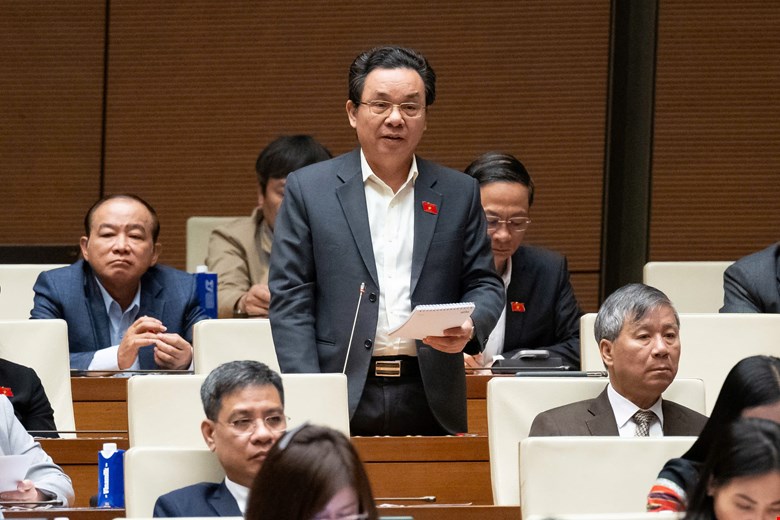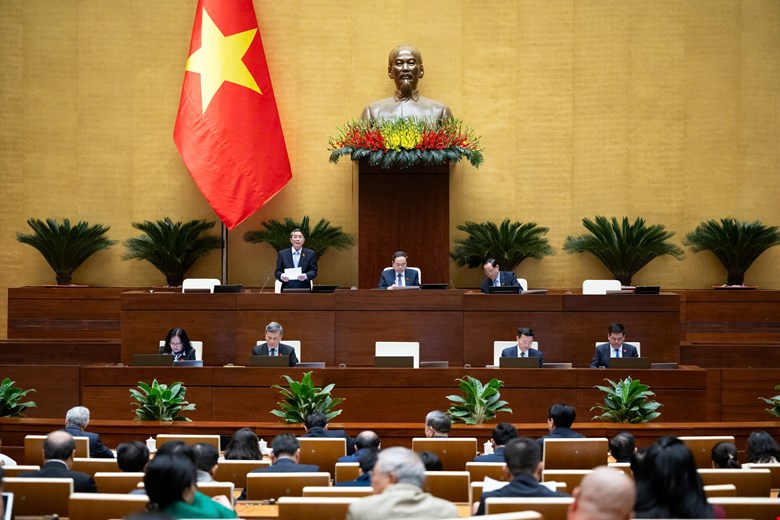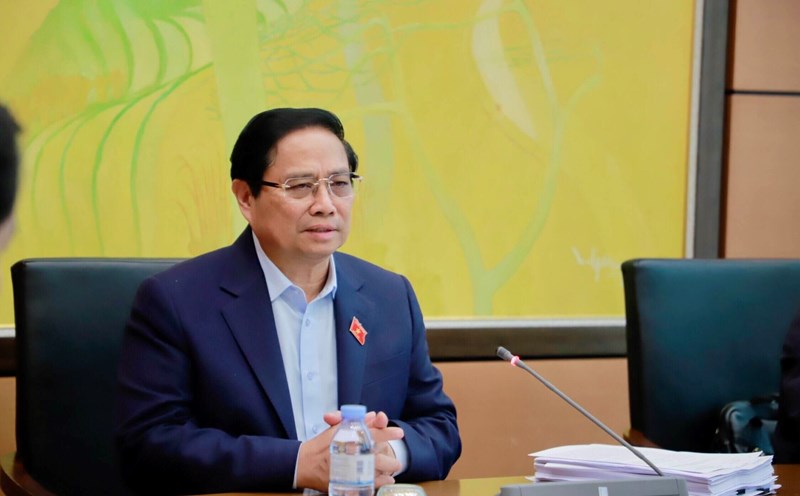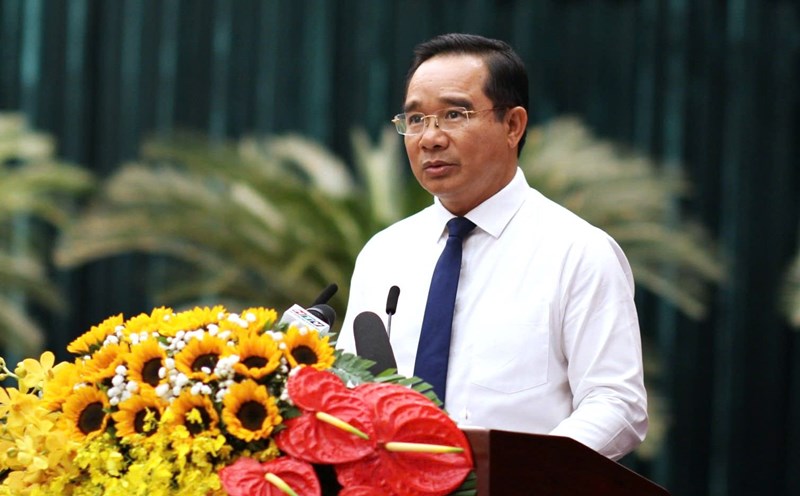A big opening for scientists
Continuing the program of the 9th Extraordinary Session of the 15th National Assembly, on the morning of February 17, the National Assembly discussed in the hall the draft Resolution on piloting a number of policies to remove obstacles in scientific and technological activities (KHCN) and innovation and specific policy mechanisms to build nuclear power plants in Ninh Thuan.
Expressing his opinion at the discussion session, Prof. Dr. Hoang Van Cuong - Hanoi National Assembly Delegation said that the draft Resolution on piloting a number of policies to remove obstacles in scientific, technological and innovation activities has many new points, helping to remove current institutional bottlenecks such as increasing investment budget for science and technology, accepting risks in scientific research because in research, it is not possible to know whether the results will be achieved or not.

Mr. Cuong compared scientific research as well as human activities in oil and gas exploitation, drilling 10 drills to make 1 oil well. The same goes for scientific research, which is risky.
This is a big opening for scientists to feel secure in their research - Professor Cuong said.
However, according to Professor Cuong, Article 6 of the Draft Resolution stipulates: "No prosecution for responsibility, except for risks if the research results are not achieved when the procedures and regulations have been properly implemented". This raises the question, what are the procedures and regulations?
"If we are not careful, we will return to the process and regulations according to the provisions of the law and if so, we will not be able to do anything. I propose to revise it to "compliance with the research process that the topic has registered". If the research is done correctly and fully this process without achieving the results, the risk will be exempted" - Professor Cuong analyzed.
Risk of policy abuse
Speaking at the parliament, delegate Pham Van Hoa - Dong Thap National Assembly delegation said that Article 6 on Accepting risks in scientific research and technology development still has many points to consider. According to the Hoa delegate, regarding organizations and individuals who fully implement the process and regulations on scientific research but still have risks, it is necessary to review and clarify this process and regulation according to legal regulations or according to contracts signed between organizations and individuals.
Mr. Hoa expressed his opinion that in cases where risks occur multiple times, the governing body needs to consider the topic, the author of the topic should do it again or not. We cannot let mistakes and ineffectiveness happen many times but still let those organizations and authors research the topic many times, causing loss and waste.
" Agreeing with the risk is exempting civil liability. But it is necessary to stipulate which cases and how many times mistakes were made. If we leave 10 studies and 7-8 mistakes but still exempt responsibility, it is not good," Mr. Hoa emphasized.

Sharing the same view, delegate K'Nhiu - Lam Dong National Assembly delegation said that regarding exemption of responsibility when risks occur in scientific research and technology development for organizations and individuals, any agency or organization must prove that research on scientific topics and consultation on approving the outline has fully implemented the process and regulations on scientific research when damage to the state occurs.
Similarly, delegate K'Nhiu said that it is necessary to reconsider the regulation on organizing the management of scientific and technological tasks using the state budget during the implementation process, if the regulations, research processes, and explanatory contents have been fully implemented but the results are not as expected, the cost of use will not have to be refunded. "If the general regulations are like this, it is easy for individuals and organizations in charge of science and technology tasks to abuse policies," Mr. K'Nhieu emphasized.











